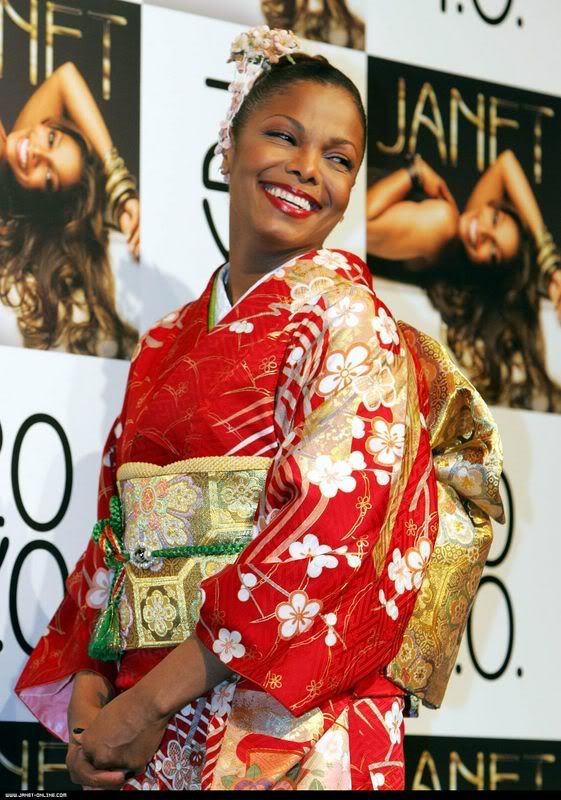unbreakableboy dijo:
Decidlo de vez en cuando, que al pobre oL naiT le dejais sólo en la batalla :jajaja: A mi hay canciones, como So Excited, Show Me y sobre todo Get it out me, que me parecen aceptables, y si fueran de otra cantante diría que son temazos. Pero el disco tiene muchísimo relleno malo incluso para un artista novel (para mi gusto), y las buenas al menos yo las esperaba mejores.Pero lo dicho, ayudadle un poco que sólo se le oye a él

Yo ya pensaba que no le gustaba a nadie nada más que a él. Desde luego lo que destaca son comentarios de "decepción" ante el disco, incluso hasta para los que pensamos que tiene alguna que otra canción que "no está mal".
jajaja si pobre oL naiT el solo contra todos , a mi me parece un buen disco tampoco una obra maestra pero tiene track que son destacables como , pero eso de que dices que si fuera de otro artista y no de Janet te pareceria bueno no se me hace justo , pero en fin es tu opinión.

Siguiendo con opiniones quie les dejo la critica que hace The New Yorker , que intenta y logra ser una critica bastante objetiva del disco,
Janet Jackson at forty.
by SASHA FRERE-JONES
Issue of 2006-10-30
Posted 2006-10-23
The title of Janet Jackson’s new album, “20 Y.O.,” is both an invitation to take note of her perpetually youthful looks (aided by the ritual magazine photographs of her near-naked, now forty-year-old body) and a directive for how to think about her career. Jackson, like her eight siblings, began performing as a child—much longer than twenty years ago. In the nineteen-seventies, she played the innocent, physically abused preteen Penny Gordon on the TV series “Good Times,” and in the early eighties she recorded two not particularly good or popular albums. Then, in 1986, she released “Control,” the record that she evidently considers to be the true starting point of her career. Produced by the Minneapolis musicians Jimmy Jam and Terry Lewis, who at the time were best known for having played with Prince, “Control” made everybody involved famous. Songs like “Nasty” and “What Have You Done for Me Lately?” presented a brash, sexually confident young woman singing over big, blocky dance beats that split the difference between pop and R. & B. (Pop-culture fans will remember 1986 as the year that the phrase “Miss Jackson, if you’re nasty” entered the lexicon.)
“Control” and Jackson’s subsequent album, “Rhythm Nation,” established her as a star, independent of her world-consuming brother Michael. This is psychologically freighted stuff: Jackson’s albums sounded little like her brother’s work and a lot like that of Prince, Michael’s only serious rival; Jam and Lewis were proving that they could create a version of Minneapolis funk that was as brawny as Prince’s without his help. Their records helped establish what became the dominant sound in dance music for several years: brisk, minimal drum patterns; bursts of keyboard and guitar; and lyrics delivered with some of hip-hop’s attitude but conveying a more old-fashioned sense of wit and double entendre.
“Control” and “Rhythm Nation” succeeded because of the music, not the artist. The albums might have been equally big no matter who was singing, and possibly better, had one of Jackson’s more vocally gifted peers—say, Jody Watley—been involved. At her best, Jackson has a small voice, with not much grain or tone. (At her worst, she wanders off pitch.) And though breaking free of her family’s influence was a genuine achievement, the independent-young-woman persona she adopted on “Control” and “Rhythm Nation” felt just as contrived as the wholesome character she played on TV. It wasn’t until 1993, when Jackson released “Janet,” that she became a musician with a sound (gentle but funky) and a topic (sex and sexuality) of her own. (Admittedly, “13 Y.O.” would have worked less well as a title.)
“Janet” seemed to draw inspiration from Madonna’s album “Erotica,” which was released the previous year. Although Jackson is the lesser artist, the two have some affinities: both are singers of average ability who dance well and carefully control their public images. “Erotica” was Madonna’s transition from aerobic dance music to slower tempos, more varied textures, and a complex view of sex. Within four years, Madonna was on to something else, but Jackson stuck with the style, making high-tech, medium-temperature, low-impact bedroom music her signature. “That’s the Way Love Goes” was the biggest hit from “Janet,” spending eight weeks at No. 1. The conceit is a standard seduction scenario—candles, undressing, sexual abandon—but Jackson makes it believable. Jam and Lewis provide her with a loop from James Brown’s “Papa Don’t Take No Mess,” and pad it with a second guitar and soft keyboards. This spare music allows Jackson to drop into her natural voice, a near-whisper. She is unable to perform the clichés—high notes, melismatic runs—that might tempt a more dramatic singer. Her simplicity draws you in.
Jackson’s forte is not bump and grind or dazzling philosophical smut. Despite the spectacular wardrobe malfunction, the flashy ensemble dancing, and the killer abs, she wants to examine sex as an intimate experience and prefers to keep the music down while she’s talking. Given her vocal limitations, this would have been wise even if she had nothing to say. But, in her modest way, she does. She has devoted entire albums to parsing how, as she put it on “Velvet Rope” (1997), “this special need that’s within us brings out the best yet worst in us.” (Of course, in pop music success has nothing to do with intellectual modesty: ten of Jackson’s singles have gone to the top of the charts. Among female artists, only Diana Ross, Whitney Houston, Madonna, and Mariah Carey have had more No. 1 songs.)
Unfortunately, “20 Y.O.” is a hodgepodge that fails to make the most of Jackson’s quiet strengths. The single “So Excited” is a loud dance tune that is reminiscent of the songs on “Control” and requires Jackson to act tough and predatory in a way that feels forced. The guest rapper Khia, a minor expert in sexual braggadocio, effortlessly dispenses saucy taunts: “Act bad, don’t hurt me. Look sexy, talk dirty.” Jackson, however, sounds slightly ludicrous when she sings, “Throw me up against whatever’s close and get to bossin’ me around.”
“Do It 2 Me” is more successful, a return to Jackson’s easy conversational style. She is searching for her lover, who is apparently not a new acquaintance: “My first and only call is to you, time after time, babe, throughout my life.” The chorus is the request you’d expect, delivered as a playful admonishment: “Come do your job tonight; you got me hot tonight. Watch what you’re doing, we ain’t moving till you get it right.” The music is a mid-tempo swing, understated but firm, punctuated by handclaps and by low swoops of a sampled string section. “Do It 2 Me” is carefully balanced on the line between slow jams—music for groups of two or three—and upscale dance music made for a crowded club. This versatility, combined with Jackson’s generally inoffensive nature, may explain how music so unassuming could become so popular. (Or perhaps it’s simply that Janet is the only sane Jackson still making records.)
“This Body” is about a more distant, though perhaps more durable, relationship: the one between Jackson and men who have an acute appreciation of her magazine appearances. Jackson addresses her most ardent fans (“Just had to buy me, had to try me, oooh, you’re in love with the hottest girl in the magazine”); offers them advice (“What you’re lookin’ for is right on page 52”); and dangles wish fulfillment before them (“Now would you be ready if I stepped off these pages?”). All this will make some guy very happy. The chorus is for the rest of us, a simple statement that returns to Jackson’s central theme: how she feels. When she sings, “This body of mine, you’ll go crazy when you see me,” she sounds seductive, if a little sleepy. At the end of the chorus, though, she is fully awake, redeeming the song’s dopey premise by repeating, but with conviction, the equally dopey verse “Start shakin’ and movin’ all around.” She is riding the album’s best beat, sinuous and dark, and the music expands, incorporating a rhythmic pattern of heavy breathing and—metaphor alert—the sound of a jet taking off. Forget her admirers; this is Janet enjoying herself.
Jam and Lewis have worked on all of Jackson’s albums since 1986, and they are co-producers of “20 Y.O.,” along with Jackson herself and one notable addition: Jackson’s boyfriend of the past four years, the producer Jermaine Dupri. In 1990, when Dupri was seventeen, he produced a song for the rap group Silk Tymes Leather that made Billboard’s hip-hop and R. & B. chart. Two years later, he produced Kris Kross’s song “Jump,” which went to No. 1. Now, at the age of thirty-four, Dupri is one of the most consistently employed producers in hip-hop and R. & B. His talent is his anonymity: he has no particular style, and that prevents him from going out of fashion.
Pop-music snobs usually don’t rank Dupri as high as they do auteurs like Dr. Dre and the Neptunes, and they fail to recognize his knack for isolating what is best about a trend and exaggerating it to wonderful effect; if Atlanta snap music is spare and weird, he’ll make it positively barren and dissonant. He also usually hires a better singer or rapper than the trend’s originators could afford. Dupri co-produced much of Mariah Carey’s “The Emancipation of Mimi,” which was the biggest-selling record of 2005. It seems that, by providing Jackson with a similar mix of dance tunes, hip-hop, slow jams, and ballads, Dupri hoped to give her an equally successful comeback album. (Jackson’s last album, “Damita Jo,” was a commercial disappointment.) To this end, Dupri, Jam, and Lewis brought in rappers to contribute guest verses, and sampled songs from the eighties. (This practice has nothing to do with Jackson’s work from twenty years ago; these days, samples of eighties tunes sell songs.)
With a few exceptions, what Jackson’s production team has come up with is no match for the minimalist come-ons of current R. & B. singers like Ciara or the lush balladeering of singers like Carey. Much of “20 Y.O.” is simply pleasant, professional, and ultimately forgettable music suspended between styles. The album is best when it lets Jackson relax, as she does on the gorgeous “Take Care,” which bears an odd resemblance to her brother Michael’s song “Human Nature.” It is unabashedly sweet music, full of space. Slowly, she makes her way toward you. It seems only right to make the next move, and inch a little closer




















